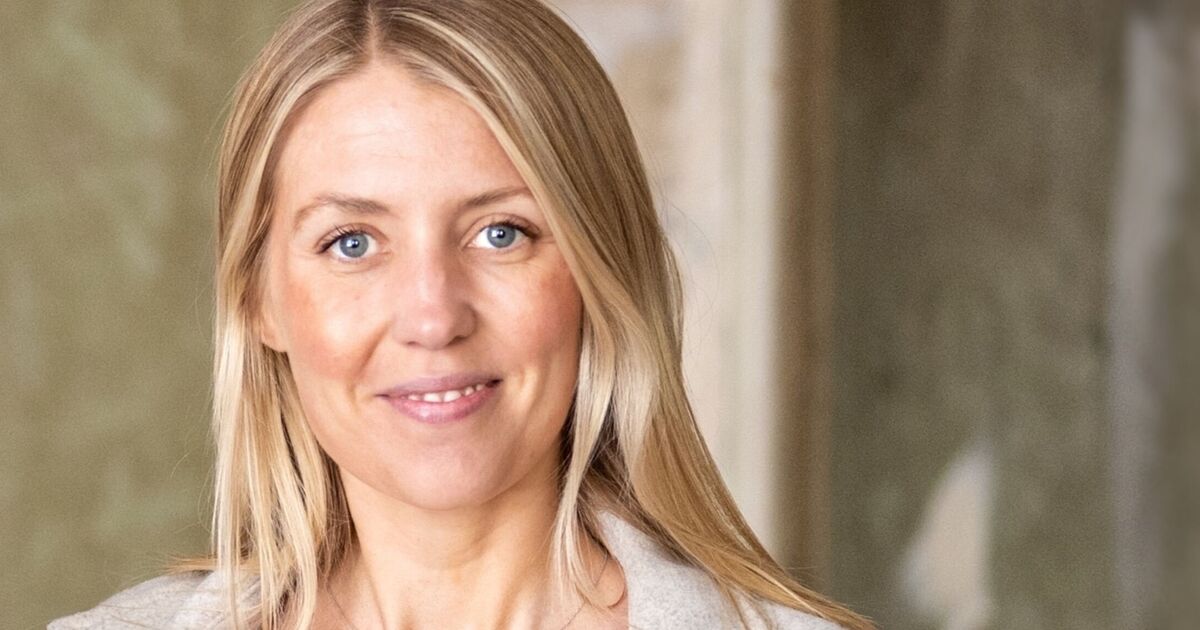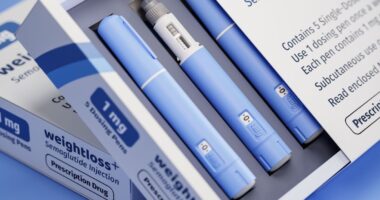A woman claims she was misdiagnosed with stress despite suffering from a rare condition – now she’s fighting for change.
When people talk about their ’20s it’s as if life really starts here. Whether you’re travelling the world, progressing in a career or hunting for ‘The One’ – it can feel as though you’re finally enjoying the freedom of being an adult.
But for Karolina Löfqvist, her experience couldn’t have been further from this ideal. Grappling with hair loss, fatigue and dramatic weight fluctuations, her ’20s were marked by days where she struggled to get out of bed. And for what reason? She had absolutely no idea.
“I used to work for an investment fund in London and in general was very happy, had a good work-life balance, a lot of friends in London,” she told The Express in an exclusive interview. “But then suddenly I started to gain weight, losing hair, I had [a lot] of difficulties breathing when I went out for a long walk.
“I went to multiple doctors that said it was probably stress-related and to take a break in my career. And at that time I was 26 – I couldn’t really afford to live in London without having a salary. So, I couldn’t really find any answers to my problems.”
For nearly four torturous years, Karolina chased answers, hobbling from one practitioner to another, only to be met with echoes of the same dismissive prognosis.
Karolina was given the option to either take antidepressants or return to using the contraceptive pill to manage her ‘stress’, but she remained convinced that her symptoms were not stress-related. She continued: “I think one of the major issues is when you see a doctor they have maybe 10 or 15 minutes with you. They don’t have time to go through the symptoms that you’ve experienced.
“{…] So, I think in one way the system is a bit broken there. And also the waiting times which is incredibly long right now – especially in the UK – it took me half a year to see the right specialist. Even then, they had so little time with me so couldn’t really understand what was going on.”
In the end, Karolina travelled to Brussels to consult a hormone specialist who diagnosed her with a fairly common deregulated thyroid. This condition can affect both men and women, but it’s particularly prevalent among women.
Karolina believes her condition was exacerbated by years of taking the pill, with her body now failing to produce enough oestrogen for itself.
She added: “I was put on the pill when I was 16 years old I had no idea, I don’t even know if my hormones were balanced at that time because I was so young. It’s a fabulous invention it’s really good that women can be in control over their family planning and all of that but, to me, it’s not the solution to all hormonal issues.”
Now 34, Karolina is gutted that she missed out on most of her ’20s, but the ordeal has certainly left a lasting impression on her. With her school best friend Jasmine Tagesson, she’s crafted the very solution she once longed for.
“There was kind of a big sadness around it, that I wasted three to four years of the best time and years in my life feeling really ill and depressed,” she said. “It was kind of an awakening that so many women suffer from hormone-related issues. That can be when you’re changing pills, or when you’re trying pregnant or when you’re going into perimenopause.
“But there isn’t really anyone holding your hand through those massive fluctuations we go through as a woman. And to me, that was just crazy, living in a world where we don’t have that information is just absurd because it’s affecting us so much. So, I decided to set up Hormona.”
Used by thousands of women across more than 180 countries, Hormona is an app that allows users to track their hormones and understand how these impact their mood and symptoms everyday.
Crafted by a team of endocrinology, gynaecology and nutrition experts, it also taps into artificial intelligence to unveil tailor-made recipes, symptom forecasts, and activities to suit each user’s unique needs.
They’re gearing up to launch a nifty 15-minute hormone test that you can do from home too. Karolina compared it to a Covid lateral flow test, but for urine samples, which you can then scan with your phone to get instant health analysis.
Karolina reassured that private information is kept secure and totally anonymous as well, thanks to EU data protection laws and that’s a promise wherever you use the app.
“What we can do is personalise the offering or solution based on your hormone levels which is really cool – that doesn’t exist today,” she said. “You test roughly once a week to figure out exactly what’s going on with your hormones and after three months you build the baseline where we can give you advice on what to do in order to feel better.
“There’s so much data that is missing when it comes to women’s health in general. We’re spending a lot of time with universities, research partners to really see how we can improve women’s health for generations to come.”








